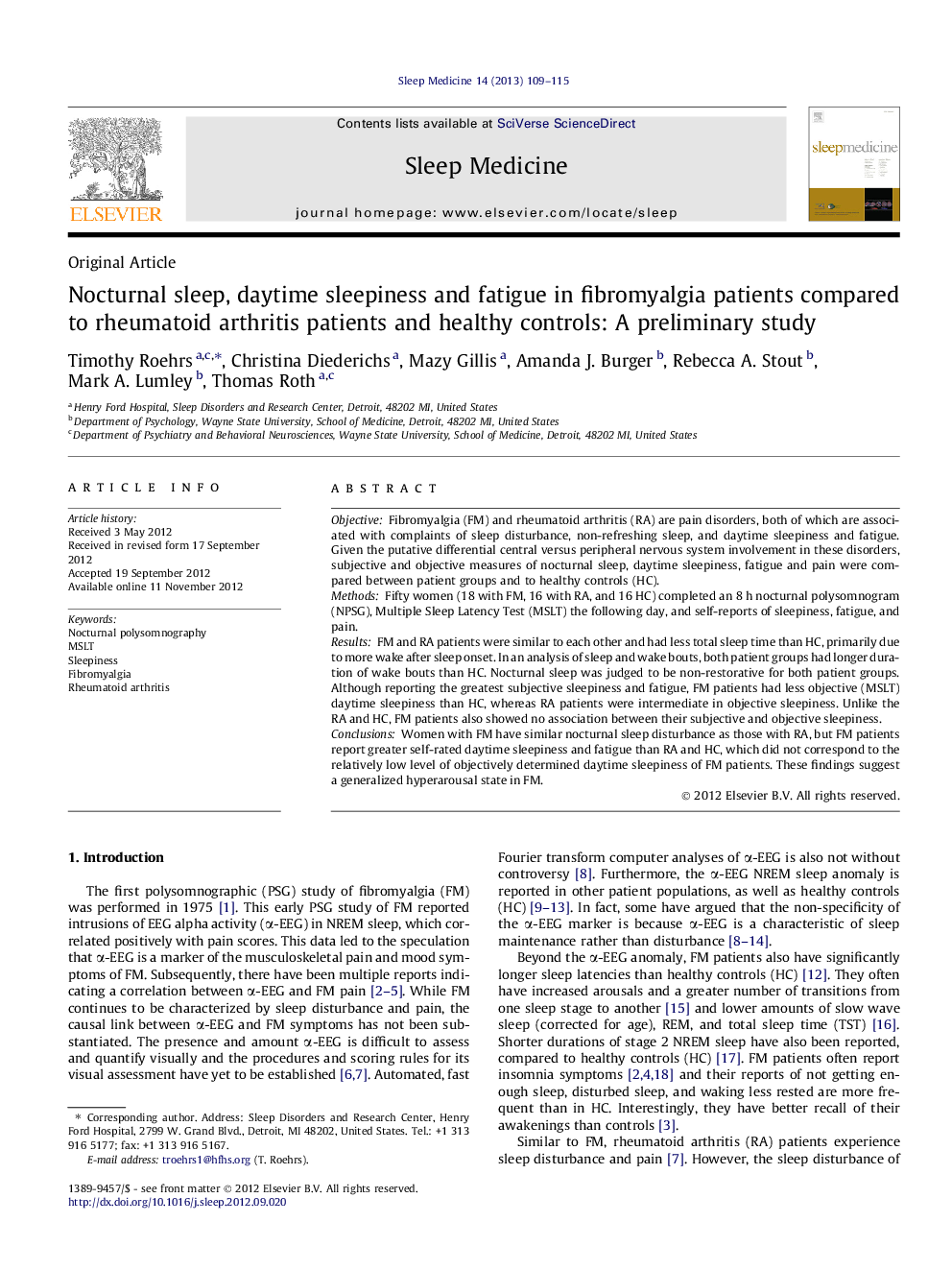| Article ID | Journal | Published Year | Pages | File Type |
|---|---|---|---|---|
| 3176178 | Sleep Medicine | 2013 | 7 Pages |
ObjectiveFibromyalgia (FM) and rheumatoid arthritis (RA) are pain disorders, both of which are associated with complaints of sleep disturbance, non-refreshing sleep, and daytime sleepiness and fatigue. Given the putative differential central versus peripheral nervous system involvement in these disorders, subjective and objective measures of nocturnal sleep, daytime sleepiness, fatigue and pain were compared between patient groups and to healthy controls (HC).MethodsFifty women (18 with FM, 16 with RA, and 16 HC) completed an 8 h nocturnal polysomnogram (NPSG), Multiple Sleep Latency Test (MSLT) the following day, and self-reports of sleepiness, fatigue, and pain.ResultsFM and RA patients were similar to each other and had less total sleep time than HC, primarily due to more wake after sleep onset. In an analysis of sleep and wake bouts, both patient groups had longer duration of wake bouts than HC. Nocturnal sleep was judged to be non-restorative for both patient groups. Although reporting the greatest subjective sleepiness and fatigue, FM patients had less objective (MSLT) daytime sleepiness than HC, whereas RA patients were intermediate in objective sleepiness. Unlike the RA and HC, FM patients also showed no association between their subjective and objective sleepiness.ConclusionsWomen with FM have similar nocturnal sleep disturbance as those with RA, but FM patients report greater self-rated daytime sleepiness and fatigue than RA and HC, which did not correspond to the relatively low level of objectively determined daytime sleepiness of FM patients. These findings suggest a generalized hyperarousal state in FM.
